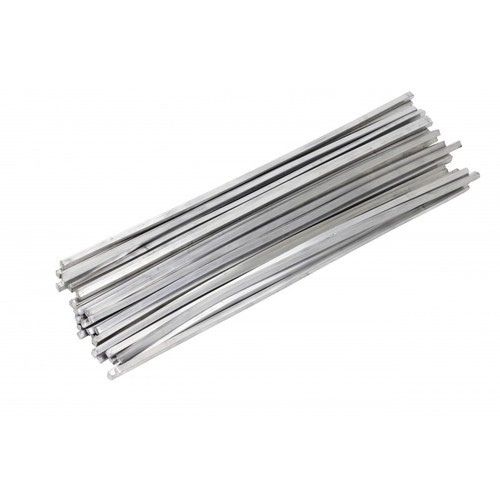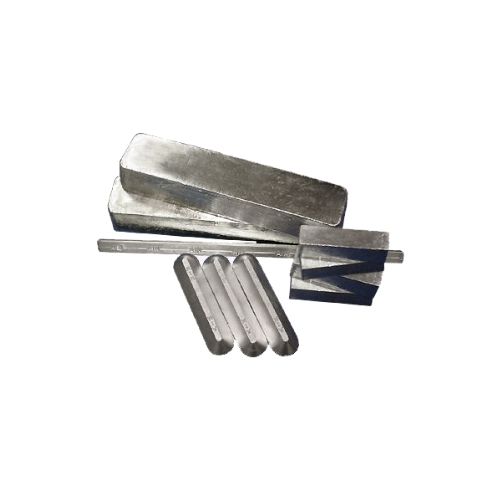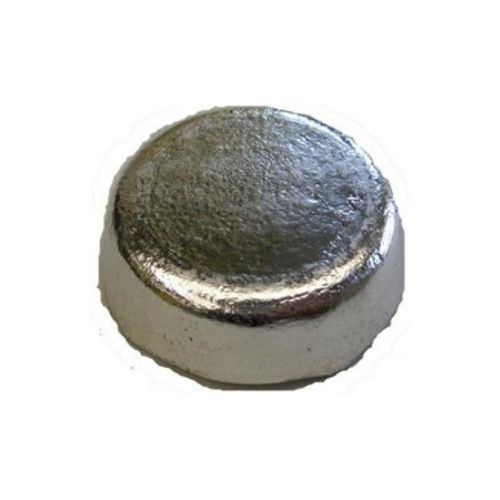Low Melting Point Alloys or Fusible Alloys are generally classed as alloys with melting points below 300 degree Celsius. These alloys are commonly made of lead, tin, bismuth, indium and cadmium. These metals have different properties that support their thermal conductivity. However, many prefer to use alloys without lead and cadmium, which are also available at Jaytee Alloys & Components Limited. As manufacturer and supplier of these alloys, JAYTEE, supplies them for different industries to utilize it as Tube and profile bending, Work holding of delicate or irregular pieces , Fusible cores for plastic or composite molding techniques, Fusible plugs for boilers and pressure vessels, Fusible safety devices for fire prevention such as CNG, Acetylene, sprinklers and other higher pressure cylinder, Lens blocking, Rapid prototyping of press tools. Other than these, there are other complicated profiles and application, where they can be used.
Low melting alloys have different compositions, which allow metals to form a liquid or semi-liquid state and then re-solidify it. The best use of these low melting alloys is that they can be used to join parts or cast temperatures that are lower than 300 degrees. To ensure great strength and durability of the product, it is essential that you choose the right alloy with right melting properties that when joined, casted or bent is durable for the use. Since parts and equipment go through rigorous manufacturing processes for which it is significant to have a better understanding of these, so that you choose the right alloy, which strengthen when solidified.
Jaytee Alloys & Components Limited is a leading manufacturer and supplier of low melting point alloys in India have a approx 1000 variety of alloys available that have different levels of melting, solidification, expended and thermal conductivity as well as made up of different metals. The most common and preferred are-
Tin-Based Alloy: These are easy to mold and shape without becoming brittle because of the malleable quality. In this only 50% of tin element is present in the alloy, which is a normal composition. The most common tin-based element used is Pewter, which is said to be a great low melting alloy.
Bismuth-based: These alloys are less ductile than the tin, as they become brittle. However, because of the expansion qualities upon melting, they are preferred more because it can expand up to 3.3%. In any alloy, more the bismuth, more they expand. Besides, they are inexpensive as compared to other ones.

Product Details :
Brand : JAYTEE
Melting Point : 183 Degree C
Form : Solid
Shape : Sticks
Percentage : 32.5% Bismuth, 51% Indium, 16.5% Tin
Length : 15 cm
Type : 11 Types Available

Product Details :
Brand : JAYTEE
Melting Point : 50 to 200 Degree Celcius
Form : Solid
Shape : Rectangle
Percentage : 32.5% Bismuth, 51% Indium, 16.5% Tin
Length : 15 cm
Type : 11 Types Available

Product Details :
Brand : JAYTEE
Melting Point : 144F
Form : Solid
Shape : Circle
Percentage : 32.5% Bismuth, 51% Indium, 16.5% Tin
Length : 15 cm
Type : 11 Types Available
You can books your order with Jaytee Alloys & Components Limited to get the best price of these low melting point alloys.
Low Melting Point Alloys and Their Uses
| LOW 158 | Typical End Use | Melt Temp: 158°F (70°C) |
|---|---|---|
| Bismuth Lead Tin Cadmium |
|
|
| LOW 158-190 | Typical End Use | Melt Temp: 158-190°F (70-88°C) |
|---|---|---|
| Bismuth Lead Tin Cadmium |
|
|
| LOW 203 | Typical End Use | Melt Temp: 203°F (95°C) |
|---|---|---|
| Bismuth Lead Tin |
|
|
| LOW 217-440 | Typical End Use | Melt Temp: 217-440°F (103-227°C) |
| Bismuth Lead Cadmium Antimony |
|
|
| LOW 255 | Typical End Use | Melt Temp: 255°F (124°C) |
|---|---|---|
| Bismuth Lead |
|
|
| LOW 281 | Typical End Use | Melt Temp: 281°F (138°C) |
| Bismuth Tin |
|
|
| LOW 281-338 | Typical End Use | Melt Temp: 281-338°F (138-170°C) |
|---|---|---|
| Bismuth Tin |
|
|



